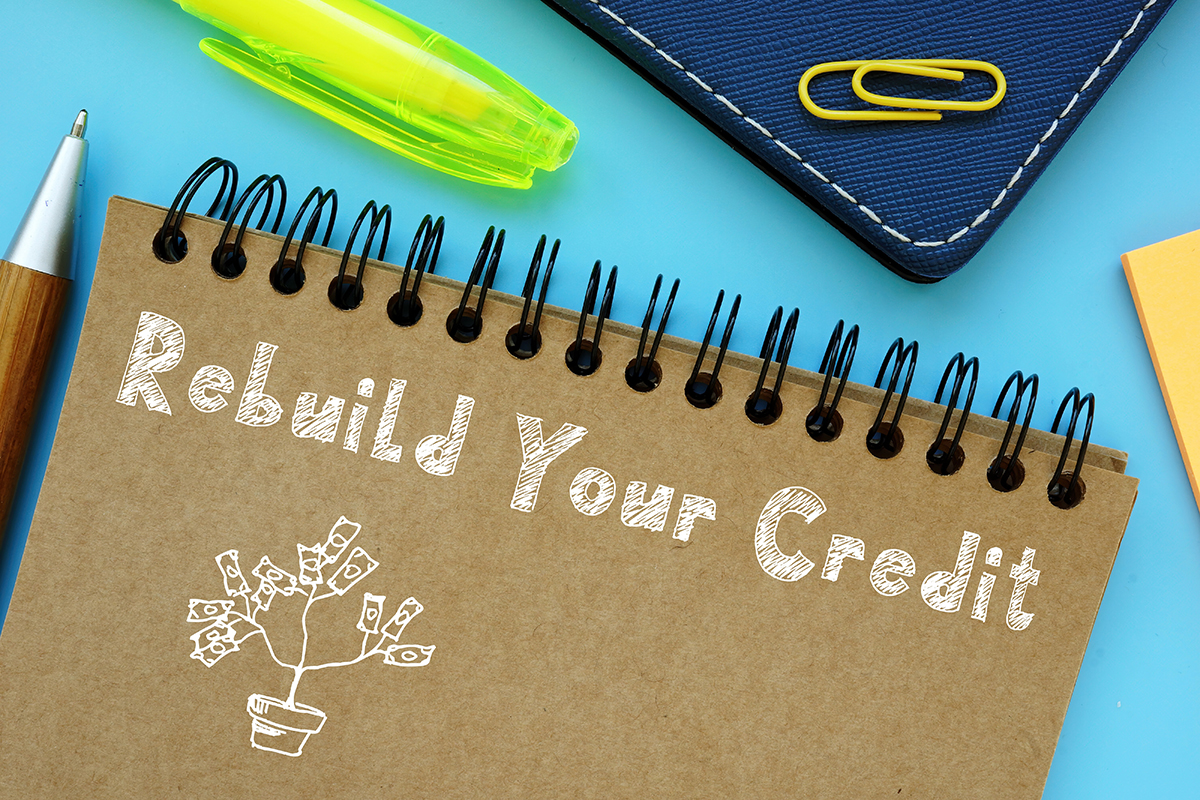How Bankruptcy Affects Credit
Bankruptcy is a legal process that individuals or businesses can go through when they are unable to repay their debts. The decision to file bankruptcy can affect creditworthiness. This may affect interest rates when making a large purchase such as a house or a car. Credit must be rebuilt over time to reduce the negative impact on credit.
Rebuilding Credit after Bankruptcy
When credit scores dip after bankruptcy, securing loans becomes a challenge. Becoming an authorized user on someone else’s credit card is one method to kickstart credit rebuilding. By piggybacking off someone else’s good credit habits, individuals can start establishing positive payment history and boosting their own scores.
Another approach to rebuilding credit after bankruptcy is by considering a credit-builder loan. This type of loan allows individuals to borrow a small amount, which is then held in a bank account while they make regular payments. As these payments are reported to credit bureaus, it helps in building a positive credit history, resulting in improved scores over time.
Monitoring credit reports and scores is equally important during the credit rebuilding process. Regularly checking credit reports for errors, keeping an eye on credit score fluctuations, and fixing any inaccuracies can all contribute to a healthier credit profile.

Credit Cards After Bankruptcy
Bankruptcy can be a challenging experience that leaves individuals feeling financially stranded. It is possible to rebuild credit after bankruptcy. One avenue to consider is obtaining a credit card. While it may seem counterintuitive to acquire new debt after bankruptcy, using credit cards responsibly can be an effective way to rebuild creditworthiness.
Difference Between Secured and Unsecured Credit Cards
Secured credit cards are typically recommended for individuals who want to rebuild their credit after bankruptcy, while unsecured cards may be harder to obtain and more expensive for those with bad credit.
Secured credit cards require a refundable cash deposit that serves as collateral, typically equal to the credit limit. This deposit protects the card issuer in case of default and acts as a security measure for individuals with a poor credit history. By responsibly using a secured card and making timely payments, individuals can demonstrate improved creditworthiness over time.
Unsecured credit cards do not require a cash deposit. These cards are granted solely based on the borrower’s creditworthiness and are typically more challenging to obtain for individuals with bad credit.
Due to the higher risk involved, unsecured cards may have higher interest rates, annual fees, and stricter credit limits, making them more expensive for individuals trying to rebuild their credit.

Timeframe for Applying for a Credit Card After Bankruptcy
The timeframe for applying for a credit card after bankruptcy depends on various factors such as the type of bankruptcy filed, creditor preferences, and the individual’s financial situation.
While there is no set waiting period, a federal bankruptcy court must discharge your bankruptcy before you can apply for a new credit card. [1] It is generally recommended to wait at least six months after the bankruptcy discharge before applying for a credit card.
This allows for some time to demonstrate responsible financial behavior and improve credit scores.
As time passes and the individual’s creditworthiness improves from using secured credit cards, they may become eligible for unsecured credit cards with better terms and higher credit limits.
Waiting Period Required by Most Credit Card Issuers
Most credit card issuers require a waiting period after an individual files for bankruptcy relief before extending new credit card offers. Often people receive these offers within a month of filing, even before their bankruptcy cases are closed and discharge orders are entered.
A month after filing for bankruptcy, more than half of bankruptcy filers receive pre-approved credit card offers. [2] This indicates that credit card issuers are willing to extend credit to individuals who have recently undergone bankruptcy proceedings.
Despite the waiting period, it is encouraging to see that credit card issuers are willing to extend credit to individuals who have recently filed for bankruptcy. This is a clear indicator that the potential exists to rebuild credit and demonstrate responsible financial behavior moving forward.

If you have been struggling with bankruptcy, contact Frego Law today for guidance on the best steps to take in rebuilding your credit.
FAQs
You can technically apply for a credit card as soon as your bankruptcy is discharged. However, the type of bankruptcy (Chapter 7 or Chapter 13) affects the timeline for discharge, which could be as little as 6 months for Chapter 7 or up to 5 years for Chapter 13, depending on your repayment plan. [3]
Bankruptcy can significantly impact your credit scores, making it more challenging to get approved for traditional credit cards. You might have to start with a secured credit card or other options designed for individuals with bad credit. [4]
Yes, it’s advisable to get a credit card after bankruptcy as it can help you rebuild your credit score. Utilizing a credit card responsibly and making timely payments can demonstrate to lenders that you’re capable of managing credit well. [5]
Sources:
[1] Frankel, R. S. (2023, November 15). Applying For Credit Cards After Bankruptcy. Forbes Advisor. https://www.forbes.com/advisor/credit-cards/when-can-i-apply-for-a-credit-card-after-bankruptcy/
[2] Credit offers target the bankrupt. (2005, April 15). NBC News. https://www.nbcnews.com/id/wbna7507711
[3] Grant, N. (2022, December 9). When Can You Apply For A Credit Card After Bankruptcy? MoneyTips. https://moneytips.com/credit/credit-cards/applying-for-credit-card/how-long-after-bankruptcy-can-i-get-a-credit-card/
[4] Vanderpool, S. (2023, June 29). How Soon After Bankruptcy Should I Apply for a Credit Card? NerdWallet. https://www.nerdwallet.com/article/credit-cards/bankruptcy-apply-credit-card
[5] Akin, J. (2023, September 14). Can I Get a Credit Card After Bankruptcy? Experian. https://www.experian.com/blogs/ask-experian/can-i-get-a-credit-card-after-bankruptcy/




